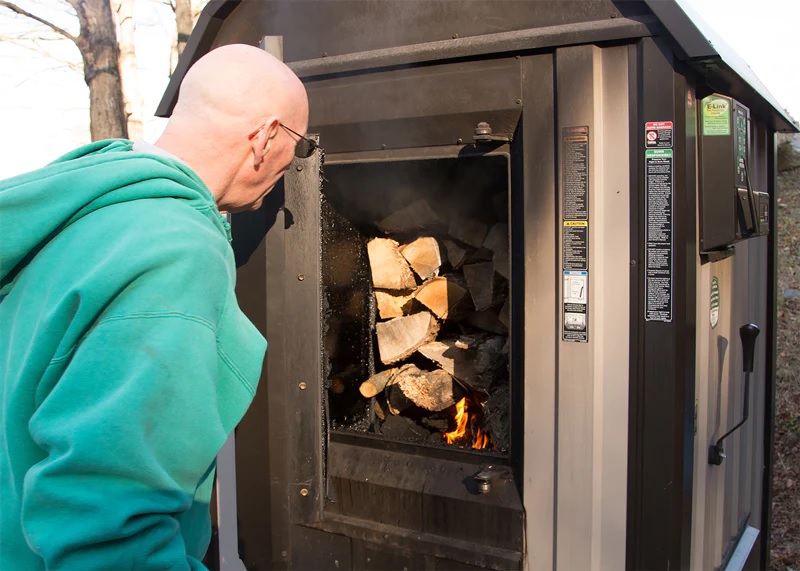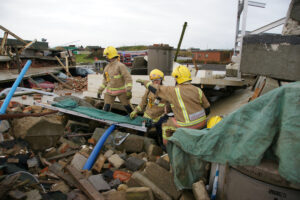
In the realm of home heating, the conversation often revolves around conventional methods like natural gas, electricity, or oil. However, a significant segment of the market is turning towards more traditional, yet highly effective methods, such as coal burning, particularly in outdoor boilers. This article delves into the intricacies of outdoor coal burning boiler prices, their functionality, and the legal landscape surrounding their use.
Understanding Outdoor Coal Burning Boilers
Before diving into the specifics of pricing and legalities, it’s essential to grasp what an outdoor coal burning boiler is and how it operates. These boilers are designed to be installed outside the residence and are capable of heating the entire home. They work by burning coal to produce heat, which is then transferred to the house through a series of pipes.
The Dual-Fuel Advantage
A notable feature of these boilers, especially the Front Loading models (excluding the Eco-FLRH-85), is their dual-fuel capability. While primarily coal boilers, they can also efficiently burn wood. This versatility is enhanced by the forced air induction blower, which introduces oxygen from the bottom and up through the grates. This mechanism is akin to a blacksmith’s forge, ensuring an intense and efficient burn whether you’re using coal or wood. For more details on these versatile heating solutions, you can explore the range and specifics of burning coal in outdoor wood boiler.
Legal Landscape
The legality of using coal for heating is a crucial aspect to consider. In the United States, the Federal Government has modeled its regulations on those in Pennsylvania, a state where coal is plentiful. These laws ensure that it’s legal to sell and use coal-burning boilers for residential heating in 49 states. This legal framework makes these boilers a viable option for many, especially in regions where coal is a common and economical fuel source.
Pricing and What Influences It
When it comes to the cost of outdoor coal burning boilers, several factors come into play. The price can vary based on the size, model, and specific features of the boiler. Generally, the more advanced the system, with features like larger loading capacities or more sophisticated emission controls, the higher the price.
Size Matters
The size of the boiler is a primary factor in determining the price. Larger boilers, capable of heating more extensive properties or those with higher heat demands, will naturally cost more. This is due to the increased materials, manufacturing complexity, and transportation logistics.
Model Variations
Different models come with various features that can affect the price. For instance, models with advanced combustion technology, better efficiency, or longer burn times might carry a premium. However, these features can lead to long-term savings through reduced fuel consumption and maintenance costs.
Current Market Prices
For the most current pricing information, it’s advisable to refer directly to the manufacturers or authorized dealers. They can provide up-to-date pricing, special offers, or discounts that might be available. You can start by checking the latest on coal boiler prices to get an idea of the current market.
Installation and Maintenance Costs
Beyond the initial purchase price, it’s important to consider installation and ongoing maintenance costs. Installation can vary significantly based on your location, the complexity of the system, and the need for any additional infrastructure like piping or a chimney. Regular maintenance is also crucial to ensure efficient operation and longevity of the boiler, which might involve additional costs over time.
Environmental Considerations
While coal is an effective heating source, it’s also important to consider its environmental impact. Modern coal boilers are designed to be more efficient and cleaner-burning than older models, but they still emit pollutants. It’s essential to ensure that your boiler meets the Federal EPA guidelines to minimize its environmental footprint.
The Water-less Furnace Option
For those concerned about the environmental impact or legalities of traditional boilers, a water-less furnace model presents an alternative. These furnaces are legal for heating a residence in 49 states as they are not classified as boilers. Most laws address outdoor wood boilers (OWBs), and since a water-less furnace doesn’t fall under this category, it offers a compliant and efficient heating solution.
Conclusion
Choosing an outdoor coal burning boiler involves considering various factors, including price, legalities, environmental impact, and personal heating needs. With their ability to burn both coal and wood efficiently, these boilers offer a versatile and often cost-effective solution for residential heating. By understanding the market, legal landscape, and environmental considerations, homeowners can make an informed decision that balances their heating requirements with their budget and ecological concerns.





